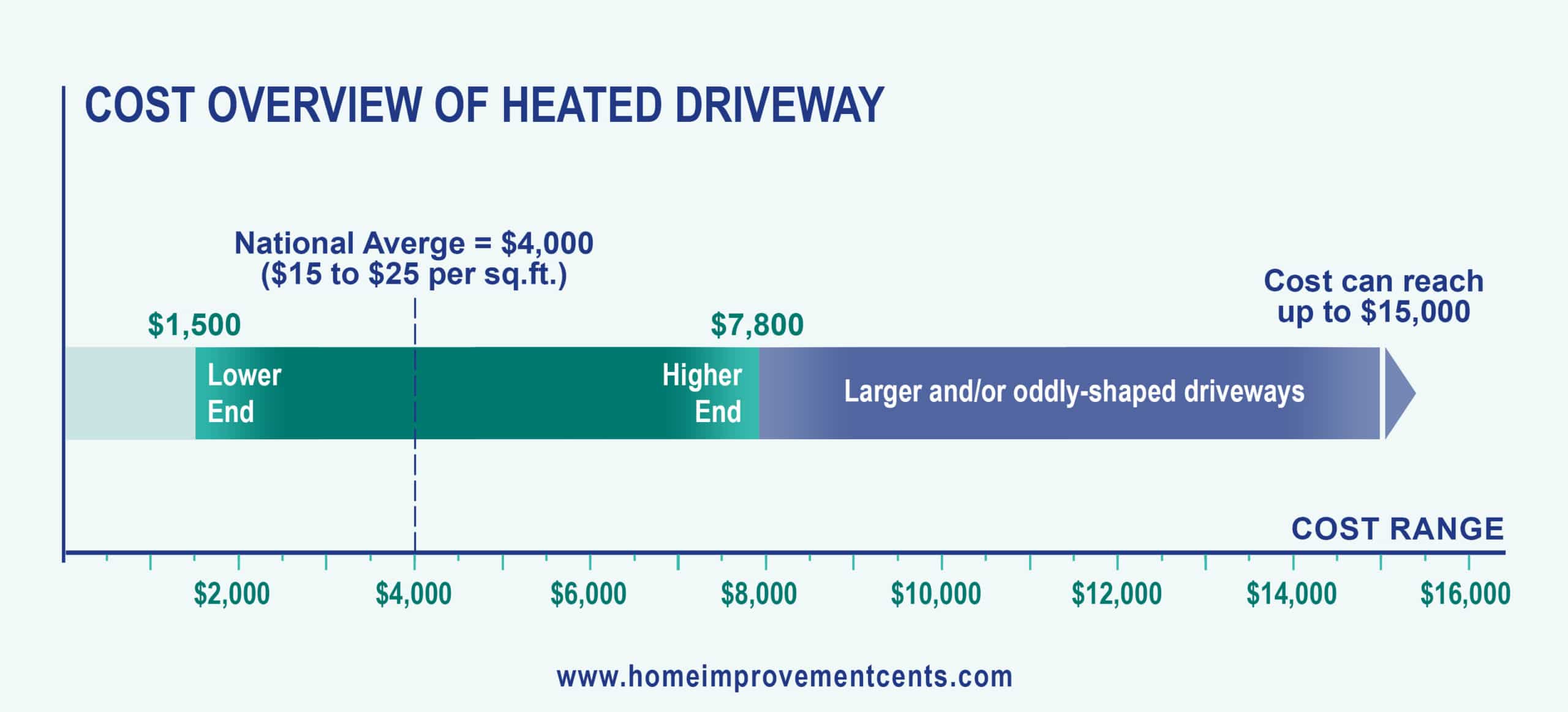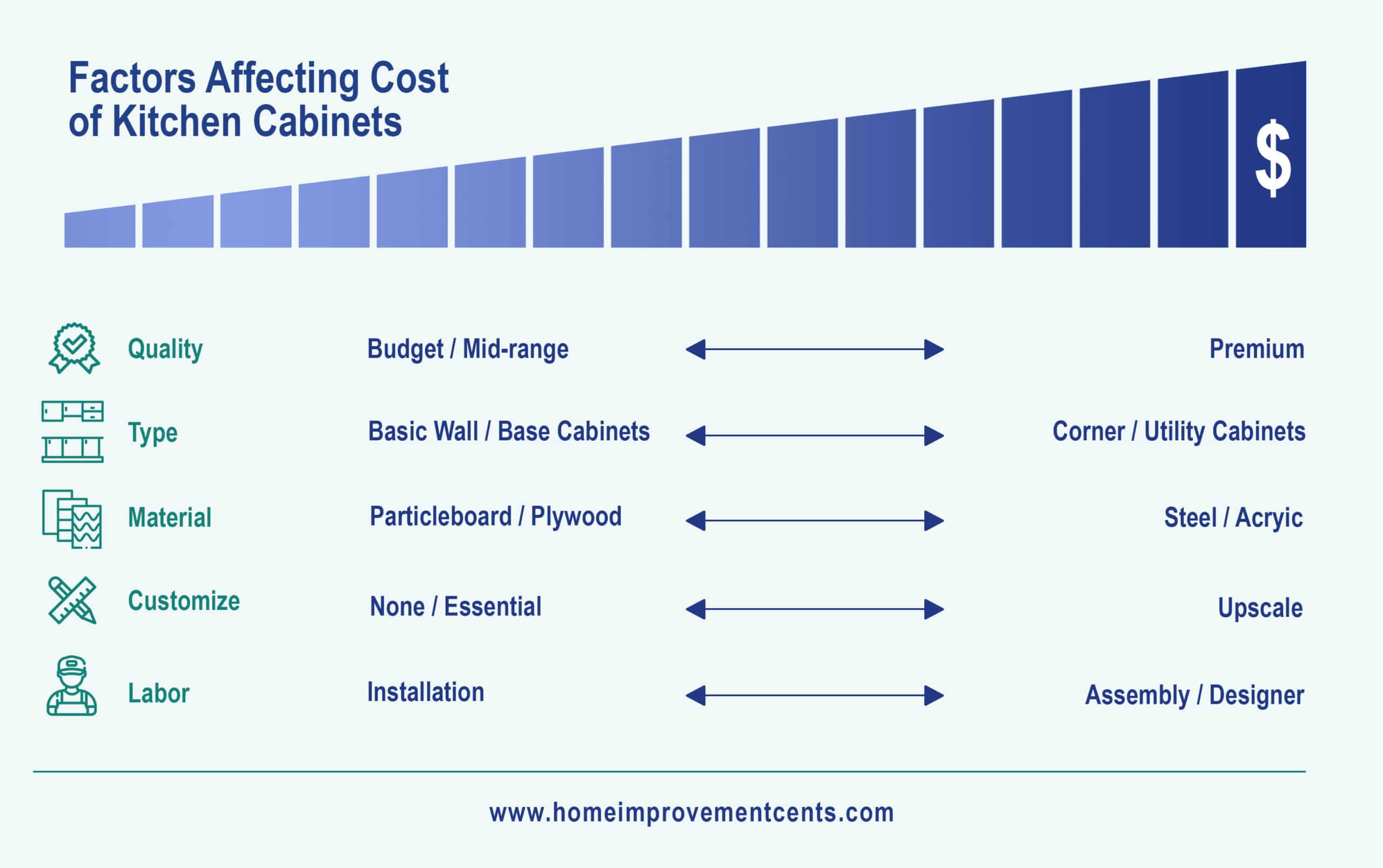If you're one of the countless homeowners who are tired of having to shovel, plow or de-ice their driveways every winter– a heated driveway is a total game-changer. This type of driveway costs $4,000 on average, though more complicated projects can cost as much as $15,000.
Heated driveways are recently gaining more popularity, especially for homeowners in the Midwest and Northeast, with freezing winter temperatures.
If you have a steep driveway at home, heavy snow can be a matter of concern. It'll be a challenge (if not close to impossible) to get your vehicle up snow-covered inclines. Not to mention, older people cannot do all the shoveling by themselves.
Now you might be wondering, do I need to install heated driveways at home? Let's discuss all the associated costs and the benefits of this project to determine if this is a great option to consider.
Heated Driveway Average Costs

The national average cost of heated driveways is around $4,000. Since there's no "one price fits all" in most instances, expect for it to cost you somewhere between $1,500 (lower-end) to $7,800 (higher-end). Longer or oddly-shaped driveways will cost you more.
This price boils down to around $15 to $25 to install a heated driveway per square foot, covering materials and installation. Generally, heated driveways cost twice or thrice the price you'd shell out for a regular driveway. (Related: Cost Guide: Concrete For Patio and Driveway)
This driveway type may sound like a luxury to some – but you'll be surprised at how secure it makes your home, especially in the winter season.
Picture this: You'll never need to pick up your boots and heavy, thick clothing to remove the piles of snow manually. Instead, you can watch the driveway snowmelt from your cozy living room. A heated driveway functions like radiant heat flooring, saving you from the tedious chore of clearing it up.
So, if you live in an area where you find yourself dealing with heavy snow every year, consider the attractive option of a heated driveway. It's best to be prepared for the costs, though. The convenience it brings comes at a price!
Factors Affecting Heated Driveway Costs
Word to the wise: Setting aside a $4,000 budget for your heated driveway project, given it's the national average, may not suffice. In some areas, prices may vary depending on local labor rates, the location of the property, as well as material costs.
It's best to prepare extra to cover all the additional costs that may arise. That said, let's discuss the most influential factors that may influence the cost of installing a heated driveway at home.

Size of the Driveway
The size of your driveway is a crucial factor that influences the total project costs. Expect driveway heating systems to cost you about $15 to $25 per sq ft, including materials and labor. If your driveway has more expansive square footage, this will naturally cost you more than standard one-car driveways.
On a similar note, driveways with irregular shapes and curves will also cost more– given the installation process will be more labor-extensive.
Driveway Material
The price of heated driveway systems also depends on their specific driveway material. Generally, asphalt driveways can be more expensive (at $8,800) than concrete ones (at $7,800).
Several homeowners also opt to simply use driveway snow-melting mats, which you can plug into a standard 120-volt outlet. However, these mats do not last as long as in-asphalt and in-concrete heating systems.
Type of Heating System
Radiant heating systems may ring a bell, a typical heating system used under tile floors. Similar systems are also used to heat a driveway: electric and hydronic heating systems.
Electric systems run on electric power to heat coils underneath the driveway surface. The warmth then melts the pile of snow. In contrast, a hydronic heating system utilizes boiling water that flows through embedded pipes to heat your driveway.
Both heated driveway systems may be automated using sensors to detect temperature and precipitation.
You will typically spend 30 to 50% more to install a hydronic heating system instead of an electric heated driveway. The additional costs may also cover installing a new boiler unit or water heater.
Note: Regardless of your chosen heating type, the operating costs to run a heated driveway may also depend on the severity of the winter in your region. Generally, the colder the climate, the higher operating costs you can expect.
If you live in the Far North, you may need to use more energy to run your driveway heating system. Depending on your preferences, choosing between an automatic or manually-controlled system may also affect the total project costs.
Drainage
Once the piles of snow in the driveway start to melt, they must be redirected elsewhere to prevent re-freeze. In some cases, this may turn into harmful black ice– which is dangerous as most drivers can't see it, the tires cannot grip it properly, and the brakes don't work correctly.
Suppose you don't have adequate draining nearby; you may be required to dig a trench or install a drainage system at home (costing you an additional $1,200 to $4,300). Similarly, it's ideal to adequately heat the pipes and gutters used for the drainage to avoid blockages caused by ice/snow.
Labor, Installation, and Materials
Another core component of your heated driveway project costs is the materials and installation expenses. In shipping delays or labor shortages where you live, expect the total costs to stray away a bit from the national average.
Properties located in large metropolitan areas have more expensive installation rates associated with a higher cost of living. However, some remote areas may also need to cover surcharges if the crew travels long distances.
If your contractor needs to demolish a part of the existing driveway to install the heated systems in place– the costs will also increase accordingly. The same goes for driveways without any nearby electrical connection from the embedded cable or tubes.
Heated Driveway: Is It Worth It?
In deciding whether or not a heated driveway is worth the high upfront costs, keep in mind your unique home situation. Having heated driveway systems at home may just be a life-saver if you live in areas with harsh winters and heavy snowfall. The same goes for properties with long or steep driveways.
Heated driveways, in general, can melt 2 inches of snow (or more) in an hour. This keeps your driveway free of black ice and snow for the entire winter. Take into consideration the installation costs if it fits your budget.
If the high upfront costs outweigh the benefits you can expect, you may be better off choosing cheaper and more accessible alternatives such as heated mats.
